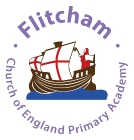Music
Intent
The National Curriculum for music aims to ensure that all pupils:
- Perform, listen to, review and evaluate music
- Be taught to sing, create and compose music
- Understand and explore how music is created, produced and communicated.
At Flitcham the intention is that children gain a firm understanding of what music is through listening, singing, playing, evaluating, analysing, and composing across a wide variety of historical periods, styles, traditions, and musical genres. Our objective at Sandringham and West Newton is to develop a curiosity for the subject, as well as an understanding and acceptance of the validity and importance of all types of music, and an unbiased respect for the role that music may wish to be expressed in any person’s life. We are committed to ensuring children understand the value and importance of music in the wider community, and are able to use their musical skills, knowledge, and experiences to involve themselves in music, in a variety of different contexts including observing and discussing live performances.
Implementation
The music curriculum ensures students sing, listen, play, perform and evaluate. This is embedded in the classroom activities as well as the weekly singing assemblies, the choir club rehearsals and performances, various concerts and shows, the learning of instruments, and the joining of one of our many musical ensembles. The elements of music are taught in the classroom lessons using Charanga software, so that children are able to use some of the language of music to dissect it, and understand how it is made, played, appreciated and analysed. In the classroom students learn how to play an instrument, from three main instrument groups of wind, strings, and percussion. Piano lessons are also available on a one to one basis. In doing so understand the different principle of each method of creating notes, as well as how to read basic music notation. They also learn how to compose focussing on different dimensions of music, which in turn feeds their understanding when listening, playing, or analysing music. Composing or performing using body percussion and vocal sounds is also part of the curriculum, which develops the understanding of musical elements without the added complexity of an instrument.
Impact
Whilst in school, children have access to a varied programme, which allows students to discover areas of strength, as well as areas they might like to improve upon.
The integral nature of music and the learner creates an enormously rich palette from which a student may access fundamental abilities such as: achievement, self-confidence, interaction with and awareness of others, and self-reflection. Music will also develop an understanding of culture and history, both in relation to students individually, as well as ethnicities from across the world.
Children are able to enjoy music, in as many ways as they choose- either as listener, creator or performer. They can dissect music and comprehend its parts. They can sing, feel a pulse and create rhythms. They have an understanding of how to further develop skills less known to them, should they ever develop an interest in their lives.
Through close association with Classical Music Rocks children are given opportunities to see professional musicians perform. Through links to Springwood High School children in KS2 are offered tuition in brass instruments to prepare them for secondary school ensembles.
Church Road, Flitcham
Norfolk PE31 6BU
